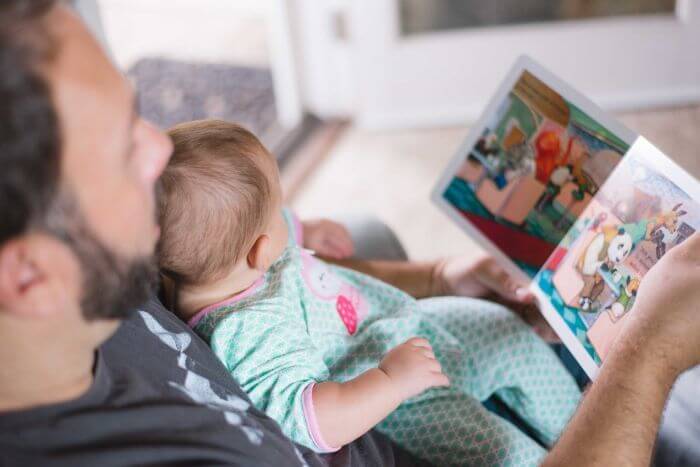Moms and offspring of single or precarious connections have higher rates of psychological well-being issues than those in stable two-parent families. Notwithstanding results that moms and offspring of conflictual two-parent families likewise show disabilities, most investigations don’t think about relationship quality. Subsequently, the present investigation joins relationship status and relationship quality to a “family type.” The present examination looks at German moms and offspring of two-parent families with high relationship quality to those from two-parent families with a low quality, single parents, and temperamental families. Information of n = 249 families from a 10-year follow-up longitudinal examination demonstrate that moms with a high relationship quality demonstrate the largest amounts of emotional wellness while every single other gathering appear at any rate a 3.2 occasions higher likelihood of psychological wellness side effects. Offspring of moms in flimsy connections demonstrate a 8.2 occasions higher likelihood to enthusiastic or social issues than offspring of moms with high relationship quality. Thusly, relationship status as well as relationship quality ought to be consolidated and this “family type” ought to be considered in future research.
Catchphrases: youngster passionate and social issues, family type, shaky family structure, relationship quality, single parents
Go to:
Presentation
In the last 50 years, structure and security of families has changed significantly. Because of expanding separation rates and diminishing quantities of relational unions around the world, a developing number of kids are brought up in elective family types (e.g., single-parent families or temperamental parent connections). In Germany, the quantity of single guardians (SPs) expanded from 14% in 1996 (1,304,000 single-parent families) to 20% in 2012 (1,607,000 single-parent families) (1). Past examinations demonstrated that single parents have impressively higher wretchedness and uneasiness side effects contrasted with moms of two-parent families (2–4). Additionally, kids raised by SPs have a higher likelihood of creating psychological well-being issues contrasted with youngsters brought up in two-parent families (2, 5–9). Aftereffects of the Millennium Cohort Study show that moms and youngsters who live in precarious families (partition, separate) have more emotional wellness issues than those of stable families (4, 10). A large portion of the past investigations center around relationship status. They analyze the contrasts between two-parent families and SPs or guardians with connections without considering the nature of relationship. In this way, it stays indistinct if the nearness or nonattendance of a relationship is in charge of the rates of psychological wellness issues or if the nature of the relationship is a significant parameter. As of now, just couple of studies incorporate relationship quality and thought about emotional well-being of moms and youngsters in stable yet miserable associations with those of upbeat connections. Hardly any results show that moms and offspring of conflictual two-parent families have progressively emotional well-being issues (9). Thusly, the present investigation attempts to fill this hole. In the present investigation, which was led in Germany, 10-year longitudinal information were utilized to consolidate conjugal status (stable versus precarious) and relationship quality (high versus low). The new factor “family type” was made, bringing about four distinct sorts (stable families with high relationship quality, stable families with low relationship quality, precarious, and single families).
Youngsters’ living courses of action have turned out to be progressively different and instable, which brings up significant issues about how family structure and steadiness are identified with mother and kid results. A few investigations that emphasis on conjugal status found that wedded moms had less psychological wellness issues than unmarried moms (11, 12) or single parents (4). Butterworth (13) found around 45% of single parents experienced sorrow or nervousness in the past 12 months after partition contrasted with 23.6% of collaborated moms. People living in unsteady associations with no or changing connections indicated higher qualities in burdensome manifestations and tension side effects contrasted with people in stable connections (14). What’s more, a connection between’s a higher number of changes in relationship status and higher pressure esteems were discovered (5, 15, 16). Crosier et al. (3) likewise inspected the impact of various socio-statistic factors (mother’s training, business, pay, and age) on gathering contrasts. They found that single parents were almost certain than moms in a relationship to live in a low financial zone, be jobless, have lower family unit salary, experience more prominent budgetary hardship, and have not finished 12 years of school. Single parents were additionally bound to be more youthful in age and have just a single tyke. Various examinations bolster these discoveries (14, 17).
Comparative outcomes were found in concentrates that inspected the impact of relationship status of the mother on youngsters’ psychological wellness. Offspring of moms in precarious connections (5, 16) and offspring of single parents (9) demonstrate a higher number of psychological well-being issues contrasted with offspring of stable two-parent families. Schick (6) detailed noteworthy contrasts for emotional wellness issues between offspring of separated from families and non-separated from families on the Child Behavior Checklist (CBCL) (18). Franz et al. (2) found that children of single parents had higher all out scores and externalizing issues on the CBCL contrasted with joined forces moms.
In addition, a few examinations found a positive connection between’s the quantity of changes in relationship status (19–22) just as sort of changes (partition, separation, or new accomplice) and mental abnormities in kids (4). Youngsters who experienced three changes in family status have a huge higher likelihood of creating externalizing and disguising issues contrasted with kids who don’t encounter a change (19). Cooper et al. (20) detailed that not just the quantity of accomplices living respectively with the mother and the youngster yet additionally the quantity of mother’s dating accomplices significantly affects externalizing issues in kids. The greater part of the past examinations center around relationship of mother and youngster and the impact of changing in family structure on emotional well-being of both. As far as anyone is concerned, less is thought about the dad tyke relationship.
Other than research results as indicated by family status, a few investigations as of now have exhibited the effect of relationship quality on emotional well-being issues of mother and tyke. Low relationship quality is related with a higher number of emotional wellness issues (9, 23–26). Shoreline et al. (27) inspected ladies who were unsatisfied with their marriage and burdensome. In their conjugal dissension model of dejection, they depict that a decrease in relationship quality joins an expansion of burdensome manifestations. An association with high caliber, in this manner, is a defensive factor for the psychological prosperity of a wedded couple. Other than burdensome indications, clashes in relationship likewise associate with the danger of creating substance-instigated issues or tension side effects.
In one of only a handful couple of longitudinal examinations that thought about relationship and quality, Clavarino et al. (9) utilized information of an Australian longitudinal examination and partitioned their example into five gatherings at the 14-year development: essential families with high relationship quality, essential families with low relationship quality, remade families with high caliber, reproduced families with poor change and unpartnered moms (who were separated, isolated, bereaved, or never wedded). Results at the 21-year line up demonstrate that moms with low quality and furthermore their young grown-ups show essentially more frequently burdensome side effects than moms and their youngsters in astounding connections. A change from high to low quality and furthermore to a solitary status associates with an expansion in discouragement.
While an adjustment in family status regularly prompts a lessening of kids’ emotional well-being, moms’ danger of wretchedness diminishes when a low-quality relationship closes. Kids living in families with a high clash rate have a lower mental prosperity than youngsters raised by guardians with less clashes (28–30). In light of the “Enthusiastic Security Theory (EST),” Cummings and Davies (31) built up a procedure arranged model to clarify the relationship between’s parental clashes and coming about conduct issues of the youngster. They accept that ceaseless clashes between guardians unreliable the parent–kid relationship as well as decrease kids’ trust in parental capacity to explain conflictual circumstances. Both increment the hazard for psychological well-being issues in youngsters.
In entirety, past discoveries demonstrated that moms and youngsters living in single or temperamental connections more frequently have enthusiastic issues than those living in two-parent families. One reason could be that single parents were more probable than moms in a relationship to live in a low financial territory, to be jobless, to have lower family unit salary, to encounter more prominent budgetary hardship, and to have not finished 12 years of school (3, 14, 17). The few investigations that looked at moms and kids living in stable however despondent associations with those living involved with top notch demonstrate that moms and offspring of conflictual two-parent families have progressively psychological wellness issues. Be that as it may, it is misty, up until this point, to what broaden a high relationship quality counteracts emotional well-being issues in mother and youngster and whether moms and kids living in a stable yet low-quality connections have indistinguishable danger of creating psychological wellness issues from moms and offspring of single or temperamental connections.
To respond to these inquiries, we consolidated relationship status (yes or no) and relationship quality (high versus low) to another term called “family type” which permits a conjoint thought of two







